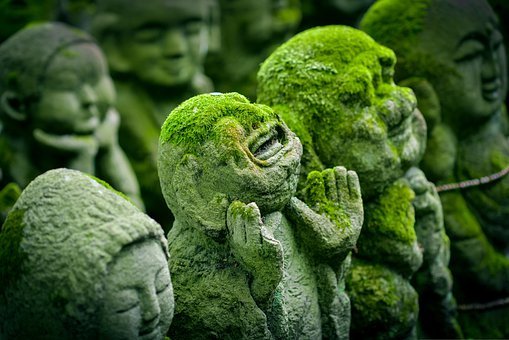That day, overshadowed by reading the newspapers which paint a grim picture of what awaits us, I join a group of children to find my niece. They play, disguised as magicians with large pointed hats and capes on which are glued stars, flowers and funny planets exploding with colors. Large silver wands in hand, they chase each other until one of them manages to touch the other. At this moment, they pronounce the formula: “Immobilos, Lumos, Expelliarmus, Oubliettes”, so many words that have the power to transform those they touch. I have it explained to me that “Immobilios” renders the adversary incapable of movement, “Lumos” projects a ray of light on him, “Expelliarmus” disarms him, and “Oubliettes” sends him elsewhere.
Transform the world
Far from making me forget the grim predictions of economists, ecologists, biologists and other specialists, their game makes me think. Don’t we have in this world a power of transformation? In the Middle Ages, we think that everything is movement, nothing is fixed and that it is up to man to be the guardian of the natural order, but also to work to make it better. Being has the duty to metamorphose on this earth, to find its wings like the caterpillar that becomes a butterfly. Moreover, without possible chance, we often see their wings represented on Christian sarcophagi.
The Parable of the Talents
Man is in the image of these ephemerals, he is a traveler, a passer-by who must make his abilities bear fruit. This is the teaching of the parable of the talents in the Gospel of Saint Matthew (25,14-30). A departing master entrusts his servants with different sums of money. When he returns, he finds with satisfaction that those to whom he has given the most have made his legacy prosper. Only the servant who had the least became fearful, buried his treasure in the ground and forgot about it. I have long found this story very unfair because it is said: “Whoever has will be given and he will have plenty, but from whoever has not, even what he has will be taken away. »
But if one enters into a symbolic understanding of the story, considering the wealth of the servants as a mark of their inner capacities, then clarity comes and one pities the man who has done nothing of his nature, even modest. He did not create life, he buried himself. In his earthly existence, he was as if dead!
Discover a beyond us
We can clearly see today that faced with the uncertainty of the days and bad prospects, our only means of resistance is to seek resources within ourselves, to reveal them by getting to know ourselves and to go and discover a beyond in us. This unknown is much more pleasing. Contrary to the tragic events of the planet, in this area we have a capacity for action and, according to the evangelist Matthew, a vital reason to accomplish this inner work.
It seems that we are sons of God, “golden cups in the hand of the sovereign”. There were a few mudslides to cover the gold! Formerly, alchemists wanted to transmute matter. In their burning crucibles, they collected a quintessence. The raw material, the black work, purified, became white, then red, a sign of the spiritual gold illuminating the material. Whether one is a gardener to cultivate his garden or an alchemist to make gold, this achievement will never be lost, even if the world is. It remains for us to become good servants!
Paul Amblard. Art historian, specializing in the art of the Middle Ages and Christian symbolism, she is the author ofAn inner pilgrimage (Albin Michel) and the Apocalypse of Saint John, illustrated by the tapestry of Angers (Editions Diane de Selliers). She published a novel, the Children of Notre Dame (Salvator).

